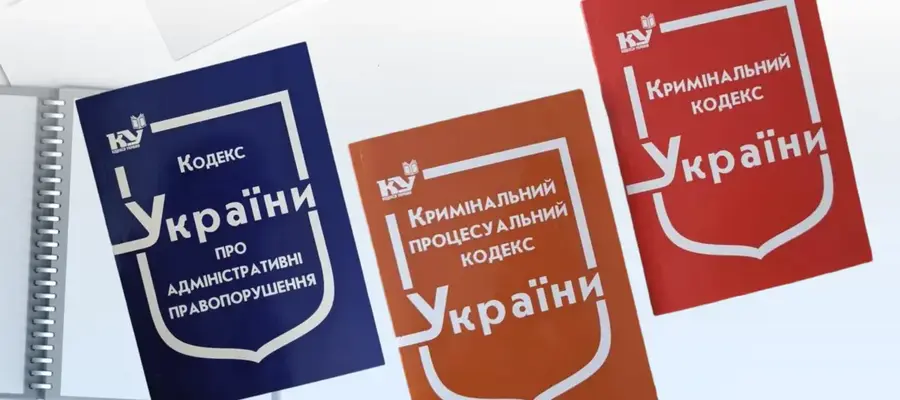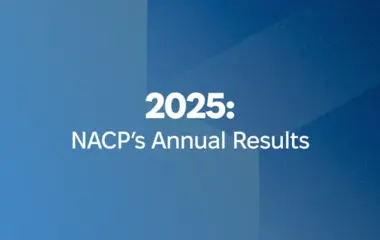On 15 July, the President of Ukraine signed the Law of Ukraine ‘On Amendments to the Code of Ukraine on Administrative Offences, the Criminal Code of Ukraine, the Criminal Procedure Code of Ukraine and other legislative acts of Ukraine regarding increased liability for corruption or corruption-related offences.’ The law was published on 16 July and will come into force on 17 July.
The law raised the threshold for administrative and criminal liability of officials for false declarations.
Prior to the amendments, administrative liability under Article 172-6 of the Code of Ukraine on Administrative Offences, ‘Violation of Financial Control Requirements,’ arose if an official indicated false information about property or other objects of declaration in the declaration, the difference in value of which was between 100 and 500 subsistence minimums for able-bodied persons (in 2025, for example, this is between UAH 302,800 and UAH 1,514,000). An administrative offence occurs if the declaration contains inaccurate information amounting to between 150 and 750 subsistence minimums (i.e. in 2025, this is between UAH 454,200 and UAH 2,271,000).
Criminal liability under Article 366-2 of the Criminal Code of Ukraine, ‘Declaration of inaccurate information,’ arose if the discrepancies in the declaration exceeded the amount from 500 minimum wages (1 million 514 thousand UAH in 2025) to 2 thousand minimum wages (6 million 56 thousand UAH in 2025).
Now, the threshold values have been increased in the relevant article: for part one, from 750 to 2,500 minimum wages (2 million 271 thousand UAH - 7 million 570 thousand UAH in 2025); in part two — to over 2,500 minimum wages (7 million 570 thousand hryvnias in 2025).
The law lowers the thresholds for criminal liability for illegal enrichment and expands the circle of persons who can be prosecuted
The provisions of the law have lowered the threshold for criminal liability for illegal enrichment (Article 368-5 of the Criminal Code) to three thousand minimum wages, which is equal to 9 million 084 thousand hryvnias. Previously, an official was criminally liable if the value of the assets acquired by him exceeded his official income by 6.5 thousand non-taxable minimum incomes (9 million 841 thousand hryvnias) or more.
In addition, new categories have been added to the list of persons authorised to perform state or local self-government functions who may be held liable for illegal enrichment, in particular, members of military medical commissions and former employees of medical and social expert commissions.
Thresholds for civil confiscation of unjustified assets have been changed
The law also amends Article 290 of the Civil Procedure Code (CPC) of Ukraine, ‘Filing a lawsuit for the recognition of assets as unjustified and their recovery as state revenue,’ changing the difference between the value of acquired assets and legal income.
Now, such a claim is filed if the difference between the value of the assets of a person authorised to perform state or local self-government functions and their legal income exceeds 750 subsistence minimums. Previously, this threshold was 500 subsistence minimums.
Important! Since Part 2 of Article 290 of the Code of Civil Procedure of Ukraine states that the subsistence minimum for able-bodied persons is set on the day of entry into force of the Law of Ukraine "On Amendments to Certain Legislative Acts of Ukraine Regarding the Confiscation of Illegal Assets of Persons Authorised to Perform State or Local Self-Government Functions and Punishment for Acquiring Such Assets" (hereinafter referred to as the Law), 1 subsistence minimum is equal to UAH 2,007 (as of the date of entry into force of the Law - 28 November 2019). That is, a civil forfeiture claim is filed if the difference between the value of an official's assets and his or her legal income is equal to or exceeds UAH 1,505,250. Previously, this threshold was UAH 1,003,500.
Terms of stay in the Register of Violators established
The law on increasing the liability of officials for corruption offences also determines the period of storage of information in the Unified State Register of Persons Who Have Committed Corruption or Corruption-Related Offences (the Register of Violators). Amendments to Article 59 of the Law of Ukraine ‘On Prevention of Corruption’ provide for the retention of information in the Register of Violators:
- one year — for information on civil liability of a natural person for committing corruption or corruption-related offences or imposing administrative penalties on a natural person for committing a corruption or corruption-related offence;
- until the expiry or removal of a criminal record — for information on the criminal liability of a natural person for committing corruption or corruption-related offences;
- five years — for information about legal entities to which criminal law measures have been applied (Article 96-6 of the Criminal Code of Ukraine) in connection with the commission of a corruption offence.
After the expiry of the specified periods, information about the person in the Register of Offenders shall be deleted.
Changes to the jurisdiction of criminal cases
- In order to delineate the powers between anti-corruption and economic investigative bodies, amendments have been made to Article 219 of the Criminal Procedure Code of Ukraine regarding the jurisdiction of criminal cases — it has been clarified which cases are investigated by detectives of the Economic Security Bureau (ESB) and the threshold for the value of property or damages has been raised, above which the case must be investigated by the National Anti-Corruption Bureau of Ukraine (NABU).
- It is important that lawmakers listened to the recommendations of the NACP and excluded from the text of the draft law provisions relating to restrictions on the lifestyle monitoring procedure (LMP). The law does not change the terms or procedure for conducting LMP. As before, it is carried out in accordance with the Law of Ukraine ‘On Prevention of Corruption’ and subordinate legislation without changes.
For reference
The changes provided for by the Law of Ukraine "On Amendments to the Code of Ukraine on Administrative Offences, the Criminal Code of Ukraine, the Criminal Procedure Code of Ukraine and other legislative acts of Ukraine regarding increased liability for corruption or corruption-related offences" are a direct response to the conclusions of the European Court of Human Rights and are aimed at bringing the Ukrainian anti-corruption system into line with the standards of the European Convention on Human Rights.









